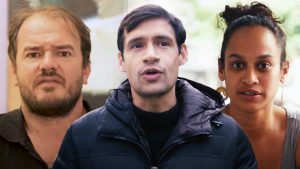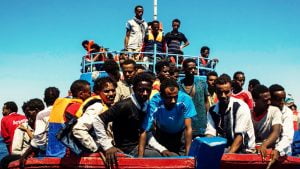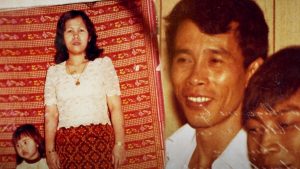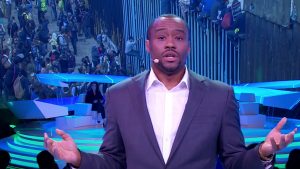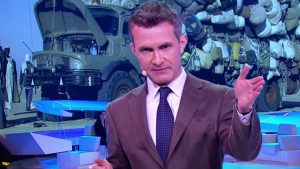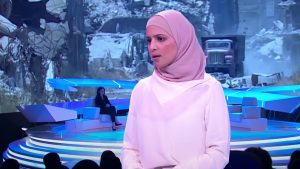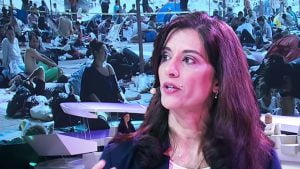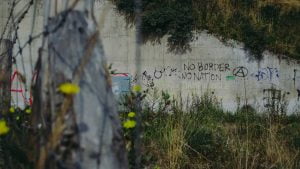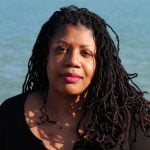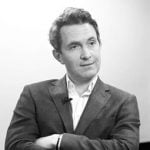
Global Refugee Crisis
One of the world’s biggest challenges is the refugee crisis: the movement of people fleeing violence, persecution, human rights violations and natural disasters, and their obstacles to resettlement.
Unit 1: Doha Debates Asks
Doha Debates Asks: Should Countries Have Borders?
Essential questions
1. What do you think when you hear the word “refugee”? “citizen”?
2. Should countries have borders?
3. Who should be responsible for fixing the global refugee crisis?
4. What three things would you take if you were forced to leave home?
5. What would you tell a refugee settling in your city?
Unit 2: Why We Can't Ignore The Refugee Crisis
Why We Can't Ignore the Refugee Crisis
44,400 people are displaced around the world daily — that's an average of 31 people every minute. Doha Debates Correspondent Nelufar Hedayat breaks down the status of the global refugee crisis.
Essential questions
- How many people are currently displaced worldwide?
- How many people per day are displaced?
- Are displaced people more often children or adults?
- Where do most refugees come from?
- Which countries are refugees going to?
- How many refugees are allowed to resettle?
Unit 3: Stories from Refugees Around the World
You Come from a Family of Refugees
Essential questions
- Is it possible for people with very different backgrounds and beliefs to respect each other enough to communicate?
- What is the experience of a young person in a refugee camp?
- Why is education so vital for children in refugee camps?
- What is it like when a person’s parents were once refugees?
- What issues arise while waiting to enter a country as a refugee?
Unit 4a: Speaker Marc Lamont Hill
Marc Lamont Hill: We're Asking the Wrong Questions About the Refugee Crisis
Essential questions
- What are the social, cultural, economic, and intellectual conditions that led these people to our door?
- How might the trade agreements and exploitive labor practices actively undermine the possibility of prosperity within Mexico?
- How might we address the issue of citizenship?
- Are we all not outsiders in our country?
- What is the role of the media in how we assess others?
Unit 4b: Speaker Douglas Murray
Douglas Murray on the Global Refugee Crisis
Essential questions
- Who can come and who cannot into a country as a refugee?
- What is the difference between people fleeing for their lives and people fleeing from severe economic deprivation?
- How well do people integrate into new cultures?
- How do we deal with the issue of refugees in the age of social media?
- How do we have a serious and deep debate about refugee issues?
- How do we overcome fatalism?
Unit 4c: Speaker Muzoon Amellehan
Muzoon Almellehan: Would You Be Able to Live in a Refugee Camp?
Essential questions
- Would you be able to live in a refugee camp?
- What is it like to first arrive in a refugee camp?
- How might it be possible to help people see a refugee as a story not just a number?
- Why is education so important and necessary for youth in refugee camps?
- Why refugees are often judged in a negative way?
Unit 5: The Connector
Debate Highlights: Sanam Naraghi-Anderlini
Essential questions
- What are the potential benefits of giving incentives to refugee host communities?
- Is it possible to enable peace building before the conflict breaks out?
- What changes should be made to The 1951 Refugee Convention to better work in the current situation?
About Deep Dive
Doha Debates hosts discussions on the world’s most pressing challenges to bridge differences, build consensus and identify solutions. In each moderated live debate, experts share their experiences and propose concrete plans. Doha Debates also offers digital resources such as videos and articles to help students build a deep understanding of the issues and to foster ongoing conversations.
